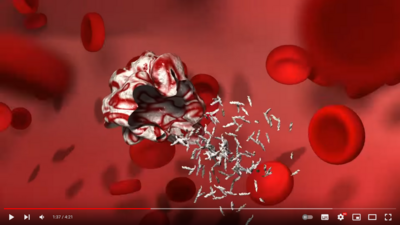ULTRAPLACAD, an innovative project for the detection of colorectal cancer, was presented at the European Commission Open Day. The project has developed a novel plasmon-based device and test chips with integrated nanostructures for the detection of mutated DNA, micro-RNAs and tumor autoantibodies.
On May 6, 2023, the European Commission Open Day was held in Brussels, where the ULTRAPLACAD project, funded by the EU Horizon 2020 program, was represented. Among the 15 other EU-funded projects, ULTRAPLACAD was selected to represent "Mission Cancer" at the event.
The ULTRAPLACAD project, coordinated by Giuseppe Spoto, University of Catania, has developed a novel plasmon-based device with integrated nanostructures for the detection of mutant DNA, micro-RNAs and tumor autoantibodies. The researchers have developed assays for the detection of circulating DNA and micro-RNA without the need for pre-amplification of nucleic acid sequences. In addition, tumor autoantibodies are detected with improved sensitivity compared to conventional fluorescence detection platforms.
The AIT played a central role in the development of new peptide-based autoantibody tests against tumor-associated antigens by experts from the Competence Unit Molecular Diagnostics of the Center for Health and Bioresources, and in the development of the surface plasmon-based fluorescence detection platform by the AIT Biosensor Technologies group.
The ULTRAPLACAD project has also developed an industrial prototype bimodal plasmon reader that integrates novel surface plasmon resonance imaging (NESPRI) and plasmon enhanced fluorescence (PEFSI) sensing technologies, providing a unique platform for comprehensive detection of nucleic acids and protein biomarkers in blood plasma. The project has established automated manufacturing processes that allow low-cost mass production to produce the single-use nanostructured chips for sample analysis.
Participation in the event allowed the ULTRAPLACAD developments to be showcased and the new capabilities for improved cancer diagnostics to be demonstrated. The project team was particularly pleased to be invited, as only a few projects out of the thousands funded by Horizon 2020 and Horizon Europe were selected to participate in the event.
More about the project: https://ultraplacad.eu/




![[Translate to English:] ULTRAPLACAD project for colorectal cancer detection presented at European Commission Open Day](/fileadmin/_processed_/0/6/csm_HMD_News2023_ULTRAPLACAD-EUComDay_EN_2a40476828.jpg)